Brian De Palma
-
Watch: “Hitchcock & De Palma Split Screen Bloodbath”
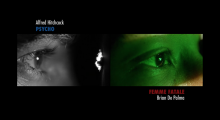
Brian De Palma has been accused by detractors of being nothing more than a shameless Hitchcock imitator. Peet Gelderblom’s video essay puts that to the test, using De Palma’s beloved split screen to compare and contrast shots from both director’s films. Hitchcock is on the left, De Palma on the right.
by Filmmaker Staff on Dec 8, 2016 -
Watch: The Dick Cavett Show with Brian De Palma and Martin Scorsese
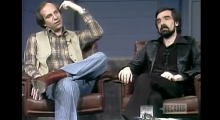
With the release of De Palma, Noah Baumbach and Jake Paltrow’s documentary on Brian De Palma and his work, and Metrograph’s continuing De Palma retrospective, material reflecting on the filmmaker’s career continues to surface. This episode of The Dick Cavett Show from 1978 provides candid insight into the work of both De Palma and Martin Scorsese. Scorsese himself introduced De Palma at the DGA New York Theater on June 10. In the discussion the two reflect on their working relationship, with De Palma declaring that the two “tend to be each other’s toughest critics.” When asked about differences in their working process, De Palma answers: “I […]
by Marc Nemcik on Jun 20, 2016 -
“This is What a Movie Feels and Breathes and Looks Like”: Noah Baumbach and Jake Paltrow on De Palma
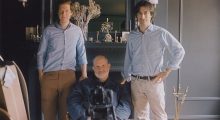
It’s always been a convenient avenue for critical dismissal to view Brian De Palma’s films as impersonal. As the director says himself in Noah Baumbach and Jake Paltrow’s eponymous documentary opening this week, he makes films from the outside in — beginning with the visual lexicon of the narrative, then connecting that architecture with living characters and scenes. Some struggle to defend their affinity for his films. The targets are legion. One is the voyeur’s presence in most of them — almost always misconstrued by detractors and, if only in the most fleeting moments, pegged as either contrivance, obsession, or […]
by Evan Louison on Jun 7, 2016 -
Brian De Palma on Directing Actors and The Boardroom Scene in Scarface

A master director gets the cinematic treatment he deserves in Noah Baumbach and Jake Paltrow’s De Palma, which is quite simply the greatest film about filmmaking that I’ve ever seen. That it consists almost entirely of a feature-length interview with its subject, interspersed with impeccably selected clips from his films, makes it all the more remarkable – it’s a deceptively simple piece of work that yields infinite insights. Using the intimacy gained from their years-long friendship with the auteur, Baumbach and Paltrow interrogate Brian De Palma about each of his films in chronological order, and the result is not only […]
by Jim Hemphill on Jun 2, 2016 -
Watch: Brian De Palma Shot by Shot
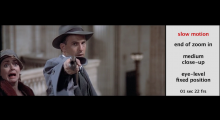
Metrograph begins their month-long Brian De Palma retrospective today, showing 28 of his films until June 30. TIFF is set to start their own slightly smaller De Palma retrospective, Split/Screen: The Cinema of Brian De Palma, on June 18, running until September 3. Now that his work is once again coming to the big screen, watch this shot-by-shot scene breakdown of the Union Station scene in The Untouchables, created by Antonios Papantoniou. Each shot is annotated with lens choice, running time, camera position et al.
by Marc Nemcik on Jun 1, 2016 -
NYFF Critics’ Notebook: De Palma
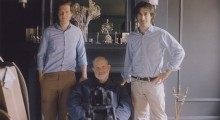
Noah Baumbach and Jake Paltrow’s De Palma is a fans-only interview session with the director. Straightforward, even staid in its construction, it consists almost entirely of two shots of a seated De Palma — one in medium close-up, the other presumably punched-in in post — and appositely illustrative clips and stills. The film currently only has two credits: the opening all-caps title “DE PALMA” scrolling left to right in lurid red, and a closing copyright credit (hard-working editors will, presumably, be thanked at a later date). Interlocutors Baumbach and Paltrow are never heard; according to this useful interview, they never even considered […]
by Vadim Rizov on Sep 30, 2015 -
Martell Harding on His Award-Winning Scarface Redux Entry
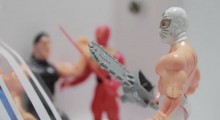
Winning the prize for the best entry in the Borscht Film Festival’s Scarface Redux contest was Florida International University student Martell Harding, whose “Shootout” is 11 intense seconds of action-figure mayhem. Borscht’s crowdsourced remake of Brian DePalma’s modern neo-classic, Scarface Redux consists of, in the vein of Star Wars Uncut, homemade clips reinterpreting the film in a variety of styles and genres. And while Borscht 9 is over, the project is continuing, with some clips yet to be covered. Meanwhile, though, the competition aspect of the project is over, with Harding’s the winning clip. The filmmaker, who is studying Communication […]
by Scott Macaulay on Jan 6, 2015 -
Borscht Corporation Launches Crowdsourced Scarface Redux
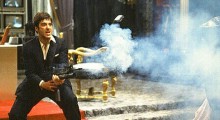
“Say hello to my little friend!” If you’ve ever fantasized unleashing your inner Tony Montana — or, more accurately, your inner ’80s-era Brian DePalma — then the latest crowdsourced art project from the Miami-based Borscht Corporation is for you. Borscht has announced Scarface Redux, a fan remake of the 1983 drug lord epic, with filmmakers from all over the world invited to direct and submit their own 15-second segment. The clip can be “live action, animation, puppets, legos, Chihuahuas, it doesn’t matter!”, the site says. The finished film will be screened at the Borscht Film Festival in December at a […]
by Scott Macaulay on Jul 9, 2014 -
Film Forum’s ‘New Yawk New Wave’ Isn’t Over
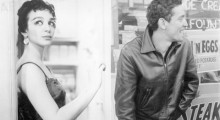
New Yawk New Wave has been running at Film Forum since January 11 but still has a couple of precious days of life left. In a way, it’s one of the more ambitious curatorial projects to emerge from the theater’s august archivists. The series isn’t bound to a single era (it encompasses the period from 1953 to 1973), genre (everything from madcap comedy to downcast drama makes an appearance), or even style (there’s New Wave, cinema vérité, post-noir, and whatever you want to call Robert Downey Sr.’s still-photos-plus-voiceovers oddity, Chafed Elbows). Besides New York origins, the main thing this wildly […]
by Jim Allen on Jan 30, 2013 -
The Blue Velvet Project, #62
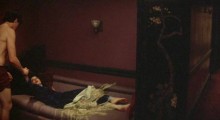
Second #2914, 48:34 1. In the aftermath of the assault, Dorothy calls Jeffrey Don, her kidnapped husband’s name. Jeffrey tenderly corrects her. “No,” he says. She doesn’t seem to hear him: “Oh Don. Hold me.” Frank, Jeffrey, and Don, the three men circulating in Dorothy’s imagination. Don. Donny. “Little” Donny. The largely off-camera presence of the Donnys governs the logic of the film. 2. In David Mamet’s 1994 play The Cryptogram, Donny (“a woman in her late thirties”) has this exchange with Del (“a man of the same age”), in which she tells him that sometimes she wishes she was […]
by Nicholas Rombes on Jan 4, 2012
